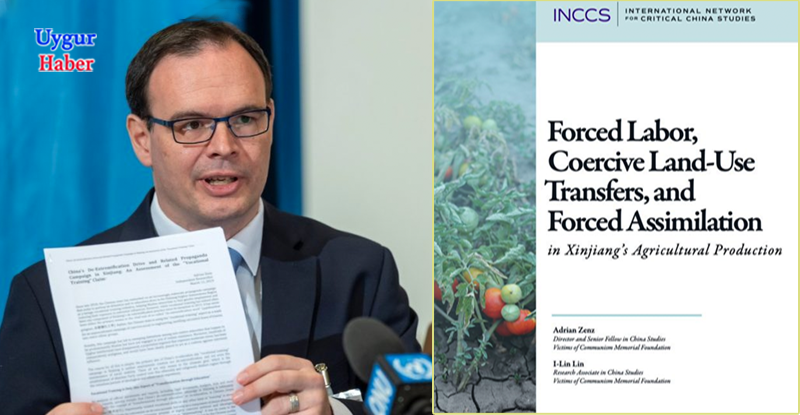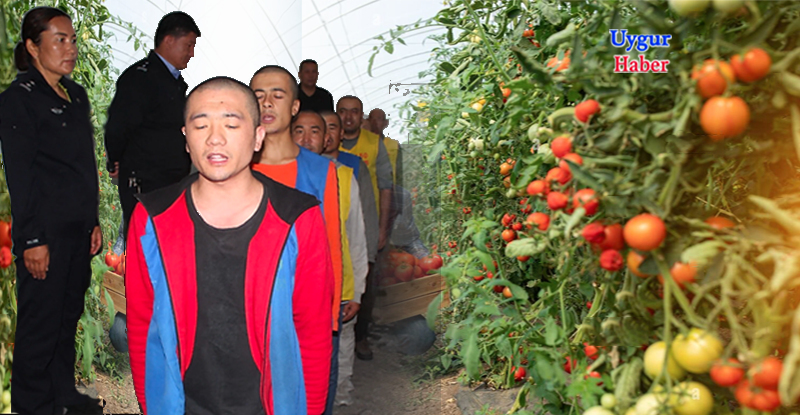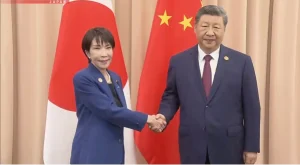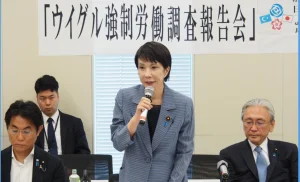The latest research documents mass land-grabbing and forced labor in East Turkistan’s agricultural production, rendering thousands of Uyghurs landless & forced to work for Chinese agribusinesses.
The findings of the latest report, ‘Forced Labour, Coercive Land-Use Transfers, and Forced Assimilation in Xinjiang’s Agricultural Production’, co-authored by Adrian Zenz and I-Lin Lin unveil the largest programme of state sponsored labour and land transfer in the world. The research documents mass land-grabbing and forced labor in East Turkistan’s tomato and pepper production, rendering thousands of Uyghurs landless & forced to work for Chinese agribusinesses.
Tomatoes, peppers, and stevia, tainted by forced labour have contaminated the global supply chains of 62 international companies. Goods linked to forced labour are being sold worldwide under trusted, household brand names deceiving consumers and perpetuating the cycle of exploitation, according to report.
The Chinese state has been found to be forcing predominantly Uyghur and other ethnic minorities to surrender their farm land to large commercial operations which then coerce them into wage labour. Between 2001 and 2021, land-use transfer shares in Xinjiang grew nearly 50-fold, indicating the staggering scale at which minorities were rendered landless and then pushed into state-mandated work.
Government documents reveal that after “liberating” farmers from their land rights, authorities direct them to work at industrial sites operated by state-affiliated companies. This means that dispossessed Uyghur farmers now rely on work in the very companies that claimed their lands, or else they toil on land they once owned, Zenz said.

What makes this report even more troubling is the fact that global companies which include Kraft Heinz, Nestlé, Del Monte, PepsiCo, McCormick, Unilever, and L’Oreal to name a few have all been complicit, allowing products tainted with forced labour to flood their supply chains.
The Inter-Parliamentary Alliance on China (IPAC) expressed profound concern over reports of forced labor and coercive land transfer schemes contaminating Xinjiang’s agricultural products and stated the following:
“We call upon these companies, and others named in the report, to act immediately to cease collaboration with state-owned entities in Xinjiang, exclude goods tainted by forced labor and coercive land transfer schemes from their supply chains, review and strengthen their internal due diligence processes, and demand that suppliers fully disclose actual and potential supply chain links to Xinjiang.
We also call on our governments to enact legislation requiring the disclosure of supply chains for commodities at high risk of links to human rights violations and to prioritize the enforcement of bans on imports from high-risk countries and intermediary regions with significant exposure to tainted supply chains.”
Enver Can, the founding president of the Ilham Tohti Initiative, emphasized the importance of the report with the following statement:
“We appreciate Adrian Zenz’s hard work, and we are sure that millions of Uyghurs around the world would join us in thanking him for his thorough and heartfelt efforts to inform the global community about the CCP’s atrocity crimes against our people.”















Be First to Comment